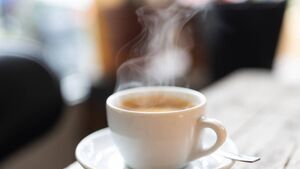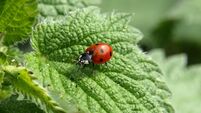A toast to coffee's feminine favour

Science has a peculiar talent for arriving fashionably late to life's most obvious parties, armed with clipboards and statistical significance, ready to solemnly announce what the rest of us have known since we first crawled from our beds in search of caffeinated salvation.
The latest missive from the American Society for Nutrition - a body that approaches beverages with the gravity of papal encyclicals - has declared coffee a fountain of youth, though with the rather crucial caveat that this particular fountain appears to flow exclusively for women. It's rather like discovering that champagne prevents hangovers, but only if you happen to possess ovaries.
The methodology reads like academic apartheid: women only, please, no Y chromosomes need apply. Seven cups daily was the magic threshold - not six, not eight, but precisely seven, as if longevity were a combination lock requiring exact caffeinated calibration. It's a quantity that would make Italian nonnas genuflect and send most mortals into cardiac arrhythmia, yet apparently transforms the fairer sex into ageless goddesses while leaving men wondering if they've been attending the wrong church entirely.
Forty-seven thousand women tracked for decades, not a man in sight. It's the ultimate ladies' lunch, except it lasts thirty years and involves careful scrutiny. Seven cups of coffee daily, the researchers discovered, delivered a 13 per cent boost in what they euphemistically call "healthy ageing" - presumably meaning you reach 70 with your wits about you and your organs on speaking terms. Meanwhile, every husband is wondering if he's been brewing his wife's ticket to outlive him by several amusing decades.
What manner of scientific conspiracy is this? A legion of subjects, and they couldn't find one man willing to drink coffee for science? The researchers claim a verifiable boost in "healthy ageing" - medical jargon for reaching pensionable age without requiring assembly instructions for your joints. One can only assume some feminist cabal in Boston deliberately excluded the male of the species, knowing full well we'd have skewed their results by adding whiskey to our samples and claiming it was a "traditional preparation method".
Now, before we gentlemen begin weeping into our morning espressos, it's worth noting that this wasn't some deliberate act of scientific misandry. The study began in the 1970s with female nurses, presumably because nurses were considered more reliable at filling out dietary questionnaires than, say, bank managers or used car salesmen. Still, the omission stings rather like being excluded from a particularly exclusive gentleman's club, except in reverse, and the club serves excellent coffee.
Here we have a beverage that has been the cornerstone of masculine morning rituals since Nescafé cornered the instant coffee market -the fuel of boardroom conquests, the companion of dawn fishing expeditions, the sacred elixir without which no devoted adherent can function before 9am. Yet when science finally gets around to proving its virtues, we're told it might only work for the fairer sex. It's like discovering that cigars cure baldness, but only in women.
Coffee, that dark mistress of the morning, has undergone more reputation rehabilitation than a politician caught with his trousers down. For decades, we were warned it would kill us - heart disease, cancer, nervous breakdowns, spontaneous combustion (I may have imagined that last one). Coffee was the villain in our cups, the liquid incarnation of our collective moral failings. Then, sometime around 2015, the dietary establishment performed a remarkable volte-face, suddenly declaring that moderate coffee consumption was not merely acceptable but positively virtuous.

The transformation was so complete it made Damascus Road conversions look like minor changes of heart. Suddenly, coffee wasn't just acceptable - it was a superfood, a magical potion brimming with polyphenols and antioxidants, capable of preventing everything from Parkinson's disease to existential dread. The only thing missing was a halo hovering over your morning mug.
But let's examine what constitutes this feminine fountain of youth. Seven cups of coffee daily. Seven. That's not drinking coffee; that's intravenous caffeine maintenance. It's the sort of consumption that would make an Italian barista weep with joy and your local cardiologist reach for his prescription pad. The study's authors, with admirable scientific caution, hastened to add that just because seven cups worked for some women doesn't mean everyone should attempt to recreate Balzac's legendary coffee consumption.
The great French writer, incidentally, was said to consume enough coffee to power a small municipality, eventually graduating to eating the grounds directly when liquid coffee proved insufficient. He died at 51, which blithely undermines the longevity argument, though admittedly, he wasn't a woman, so perhaps the rules were different.
What's particularly galling about this gender-specific research is that it arrives just as coffee culture has reached peak sophistication. We've evolved from the days when coffee meant a spoonful of Nescafé dissolved in lukewarm water to an era of oat milk cortados, cold brews aged longer than whiskey, and baristas who treat espresso extraction with the reverence once reserved for religious ceremonies. The modern coffee shop has become a temple of caffeinated worship, complete with its own priestly class-wielding gleaming machines worth more than a Ford Fiesta.
Yet for all our newfound coffee sophistication, the actual beverage remains fundamentally the same: the seeds of a tropical plant, roasted until they surrender their oils, then subjected to hot water extraction. It's remarkable that something so simple - essentially plant soup - can inspire such devotion, such ritual, such scientific investigation. Coffee shops have become our secular churches, places where we gather to commune with our phones while participating in the ancient human tradition of consuming mildly psychoactive substances in public.
The study noted that tea and decaffeinated coffee failed to provide the same benefits, which will come as crushing news to our British neighbours, who have built an entire civilisation around leaf-based beverages. Apparently, caffeine is the key ingredient in this elixir of extended youth, which poses the conundrum of why drinking cola - that other caffeinated beverage - is actually associated with decreased odds of healthy ageing. As a Ballina man, there's something poetic about Coca-Cola being coffee's evil twin, both caffeinated but travelling entirely different paths toward mortality.
The most telling aspect of this research is how it reflects our contemporary relationship with both science and pleasure. We can no longer simply enjoy our morning coffee; we must justify it with studies, sanctify it with health benefits, and transform pleasure into a form of medicine. The Puritans would be proud of how we've managed to make even hedonism feel virtuous.
There is a mystique about coffee that no study can quite capture: it's not really about the health benefits or the antioxidants or the polyphenols. It's about the pause, the ritual, the moment of contemplation before facing the day's inevitable disappointments. It's about the social contract that says civilisation begins with that first sip, that meaningful conversation requires caffeinated lubrication, that some of life's best decisions are made over coffee and some of its worst are made without it.
So, while we gentlemen wait for science to confirm whether coffee's benefits extend to our half of the species, perhaps we should simply continue doing what we've always done: drinking it anyway. After all, the worst that could happen is that we live shorter, less caffeinated lives. And what's the point of that?
In the meantime, I'll continue my own personal coffee study, sample size of one, duration indefinite, methodology questionable but enthusiastic. If the women of Ireland are going to live longer thanks to their coffee consumption, the least we can do is keep them company, one cup at a time. After all, someone has to make the coffee, and despite what the researchers might suggest, some traditions transcend gender - even if their benefits, apparently, do not.





